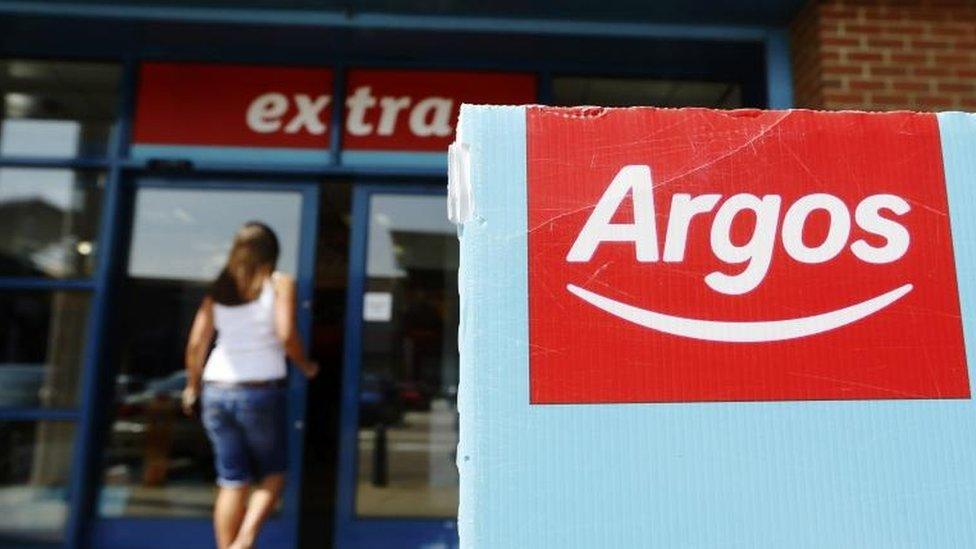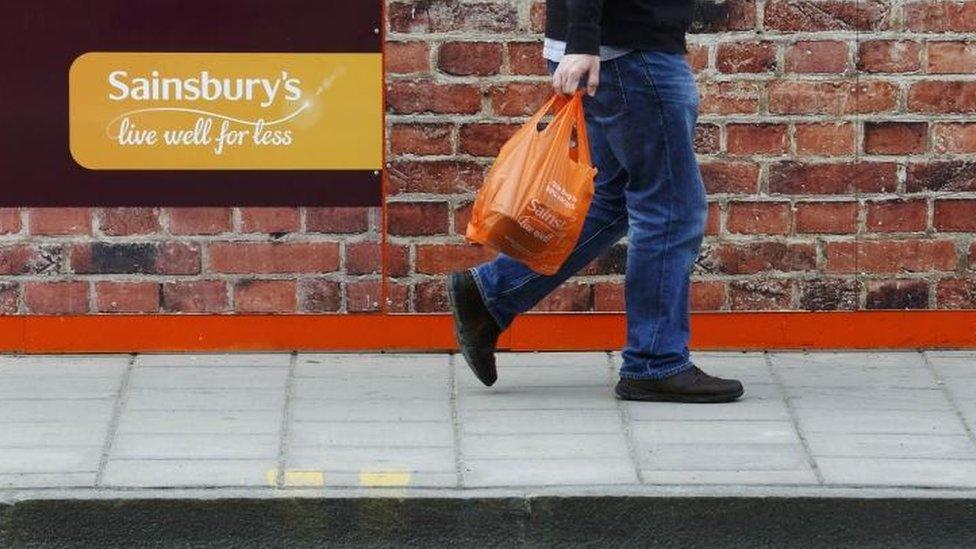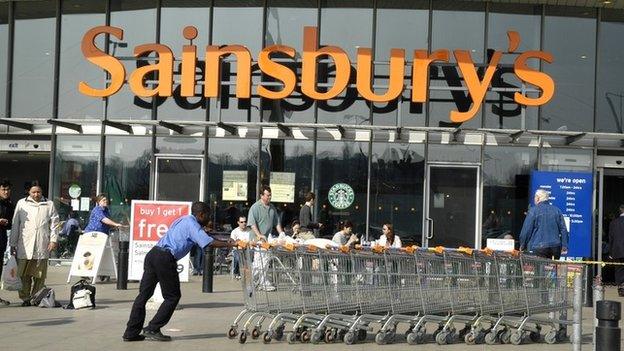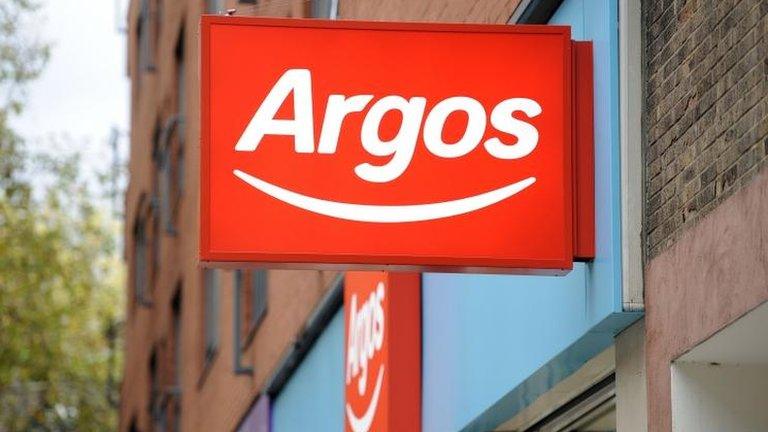Sainsbury's bid approach for Argos owner Home Retail rejected
- Published

Supermarket group Sainsbury's has said it made a bid approach for Argos and Homebase owner Home Retail Group in November, but the offer was rejected.
It said, external a deal would be "an attractive proposition" for customers and shareholders of both firms.
Home Retail Group confirmed its rejection of the bid, external, which it said "undervalued Home Retail Group and its long-term prospects".
Sainsbury's said it was "considering its position".
But it cautioned there was no certainty this would result in a formal offer.
Under UK takeover rules, Sainsbury's has until 2 February to decide whether to make a formal offer.
Over the past year, Sainsbury's has been trialling Argos concessions in some of its stores, and the supermarket group said the two firms had "complementary products".

In its statement, Sainsbury's outlined its case for buying Home Retail Group, saying it would boost sales growth, improve its delivery networks, and meant they could sell their products to each other's customers.
Home Retail Group's shares closed up 41%, while Sainsbury's fell 5%.

Analysis by Emma Simpson, BBC business correspondent:
Desperation or daring? It's definitely a bold, audacious move by Sainsbury's and one which has taken investors and retail experts by surprise.
Joining forces with Argos could make sense. Sainsbury's is already trialling Argos stores in a number of its supermarkets as it grapples with what to do with excess space.
It could also allow Sainsbury's to expand its "click and collect" operations at suitable Argos stores.
The rationale for owning Homebase is much less clear. If a deal was done, Sainsbury's could end up selling it.
There's certainly been takeover speculation involving private equity in recent months. Another question is how would they fund such a big deal?
Sainsbury's, like all the other big grocers, is under pressure from the discounters, although it's been doing better than its main rivals in recent months.
There's little sign that 2016 will get any easier for the industry with little growth to write home about. Today's news is a fascinating twist in the fast changing supermarket landscape.

Sainsbury's is now the second-largest British supermarket in the UK, with a 16.7% share of the grocery market, according to Kantar Worldpanel.
The research firm's latest figures showed the supermarket was the only one of the big four to post a growth in sales for the 12 weeks to 6 December.
Sainsbury's, which was founded in 1869, now has about 1,200 supermarkets and convenience stores and employs about 161,000 people.
Home Retail Group, which is valued at around £1bn at its current share price, has been mooted as a possible takeover target since it issued a profit warning in October, which it blamed on the impact of Black Friday shopping deals and investment in its online ordering system.
Home Retail Group has 1,051 stores across the UK and employs 47,000 staff.
'Shops within shops'
Sainsbury's originally co-founded the Homebase chain, but sold it in 2000, external in a deal worth £969m in total.
Conlumino food and grocery analyst George Scott said this meant Sainsbury's already had a good understanding of the sector.
He said if the deal went ahead it would help Sainsbury's to better establish its presence in the non-food market.
"It would give it scope for shops within its existing stores where it has excess space. I think it's a well thought out proposition," he added.
Hargreaves Lansdown analyst Keith Bowman said the fall in Sainsbury's shares indicated investors were cautious about the deal.
"Home Retail remains a company in transformation, with sales at Argos still yet to convince, whilst the combination of food and non-food, combined with a bank offering, to some degree, potentially reflects the still troubled Marks & Spencer," he added.
Analysts at Jefferies said Sainsbury's approach would be seen by many as a lack of confidence in the prospects for its core supermarket business.
"There is little that Sainsbury can add in terms of expertise in non-food multi-channel offerings, and as a result the potential acquisition of what is largely viewed as a structurally challenged business will raise some eyebrows," it said in a note.
- Published5 January 2016

- Published11 November 2015

- Published21 October 2015
